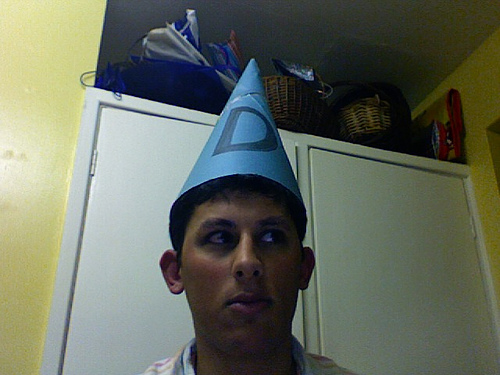My bad.
Turns out my last post attacked a post that was set up to be attacked (his companion piece is here). I could have saved myself some time and read more of the site. The only problem I have with small pieces loosely joined is, for me anyway, it’s easy to lose the overall context of the pieces and you end up with misunderstanding because that context is missing. I subscribe to lots of sites1. It’s a little too easy for me to see the chunks as individual ice cubes rather than pieces of a larger glacier2. Sometimes that matters, sometimes it doesn’t- another way technology has made media literacy a little more complex3.
Totally my fault and looking back at it, the post did seem too easy. I’m leaving the post up, both to remind myself to pay better attention and because I still believe the whole rationale for writing the post is true whether the original post was written in earnest or not.
I believe our society and education in specifically has attempted to legislate its way out of problems and we have suffered gravely as a result4. From the top down, the choice and intelligence of individuals is stripped from the system. Centralized pacing guides are the mandatory sentencing of the education world.
Anyway, I’ll loosen up in a few days and maybe write something that is actually useful- or not.
Other Random Yet Related Thoughts
On a side note, Dale’s method of posting on both sides of the subject ties in with another discussion I had with Adam a few days ago. He wants to do a podcast where two edtech people debate opposite sides of an issue like YouTube in school. Sides are assigned randomly and humor and a degree of irreverence is encouraged. Maybe I could be against YouTube in schools and debate Dale or Jim. 🙂
Another thing I’d like to see would be “fact sheets,” for lack of a better word, describing the benefits and negatives of concepts and tools. I want to see places where people can go to start the discussion around a lot of this stuff with an attempt at full disclosure. You talk to your community and try to show them what’s possible and what the issues are, then you let them make the decision. We tend to get partisan views on either end of the spectrum. It’d be interesting to try to do it the other way.
1 I don’t know how many, several hundred feeds probably. There’s good and bad in that. Especially, considering I suck at remembering names and I subscribe to some people just because they disagree with me totally.
2 It’s a lot easier to notice the yellow snow if you see it surrounded by white snow.
3 I’m not saying that context is only important now but rather that technology and the way information flows has become increasingly divorced of a larger context and is often seen separately from an author’s larger body of work.
4 Man, that sounds pretentious.

